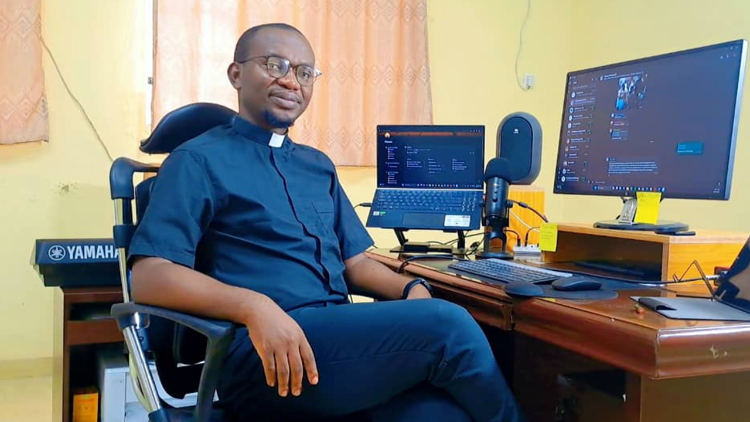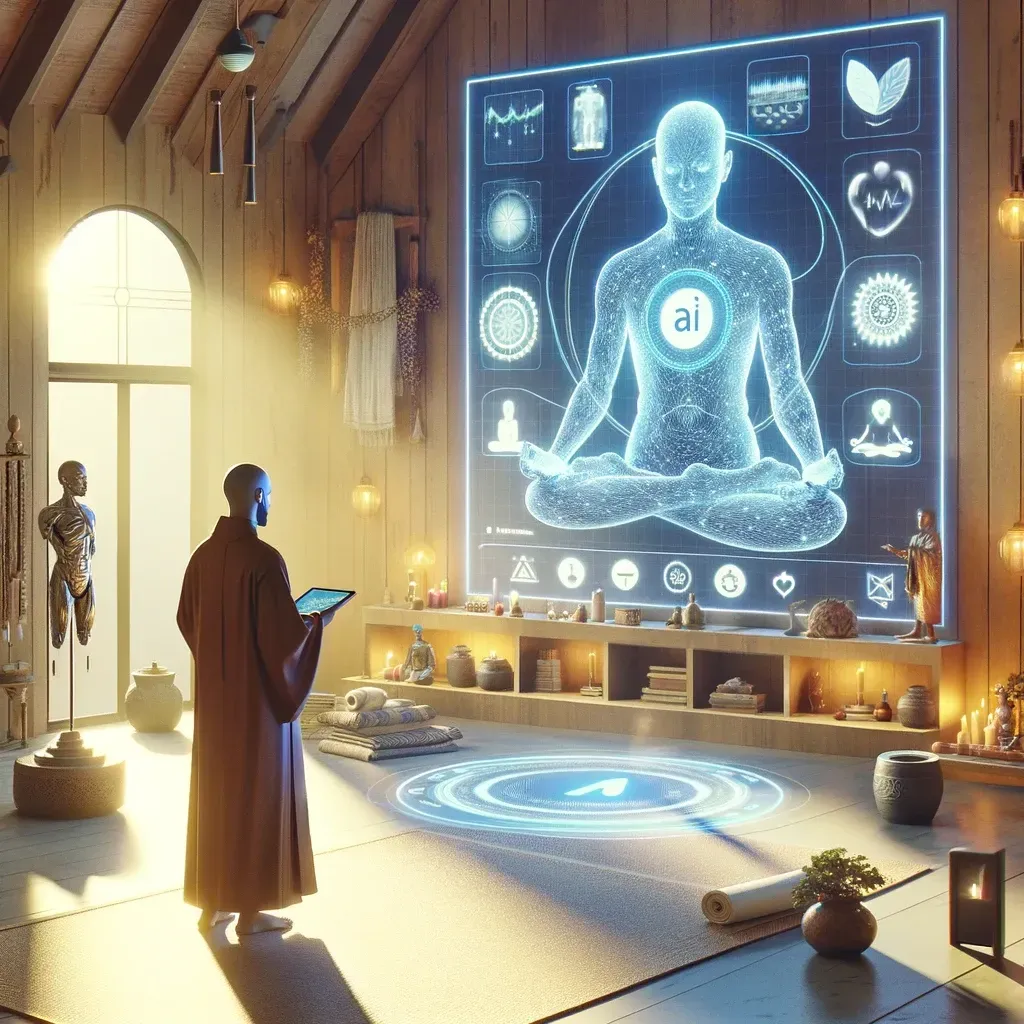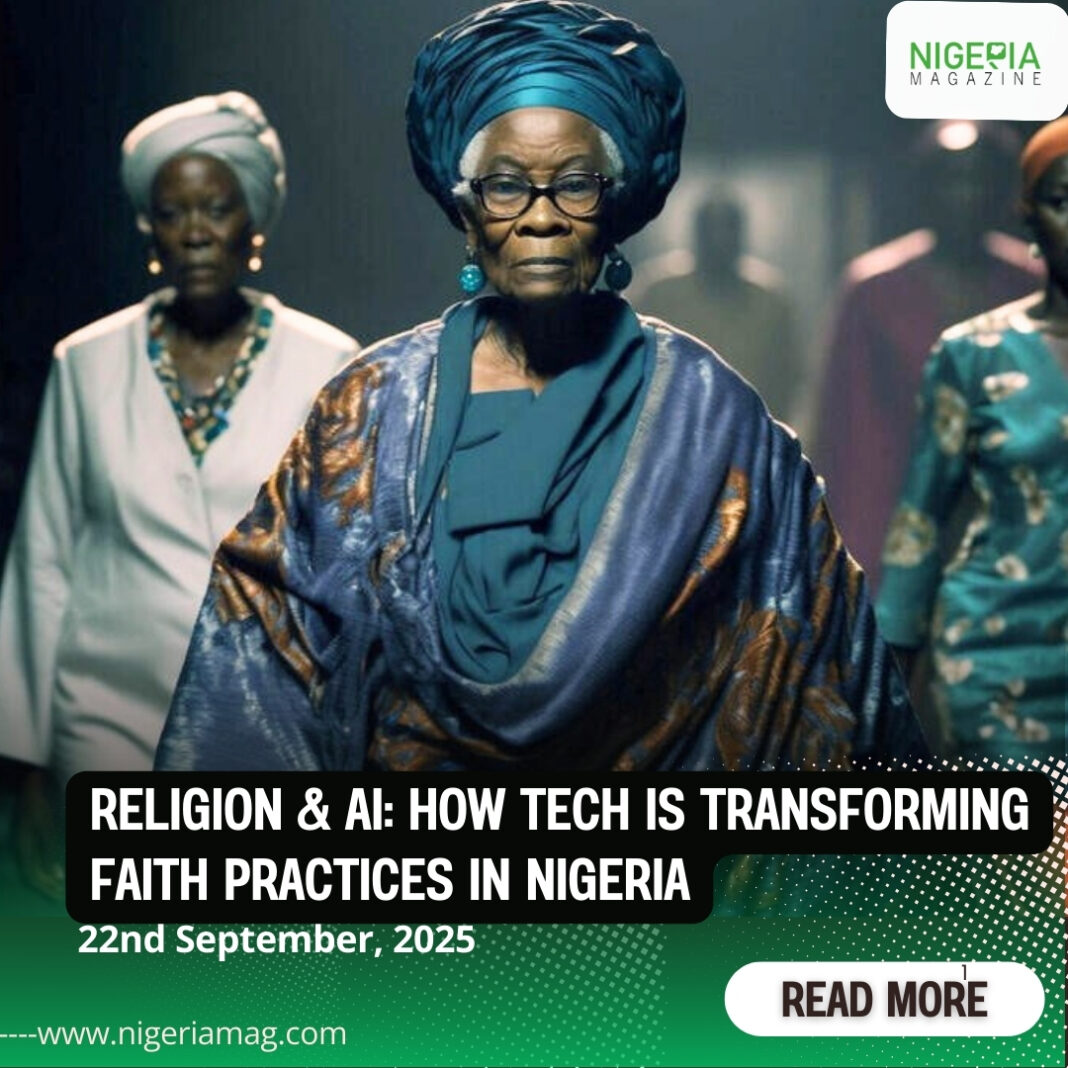In recent years, artificial intelligence (AI) has moved beyond the realms of science and commerce into spheres of human life often thought to be immune from technological disruption. Religion, one of the most deeply rooted aspects of human culture, is now undergoing transformation as AI tools are reshaping how Nigerians practice, experience, and interpret faith. In a country where Christianity and Islam dominate the spiritual landscape, alongside vibrant traditional religious practices, AI is finding new applications that raise both enthusiasm and caution.
AI in Sermons and Religious Teaching
One of the most visible impacts of AI on religion in Nigeria has been in the dissemination of sermons and religious teachings. Many churches and mosques are now using AI-powered platforms to automatically translate sermons into local languages such as Yoruba, Hausa, and Igbo, making religious messages more accessible to diverse congregations. AI transcription tools also allow religious leaders to reach online audiences by generating text summaries of sermons, which can be distributed via WhatsApp, Telegram, or social media channels.

Christian megachurches, particularly in Lagos and Abuja, have begun experimenting with AI to tailor spiritual content to individuals based on their prior engagement. Algorithms track which sermons or Bible study materials a member interacts with online and then recommend additional content. Similarly, some Islamic organisations are using AI-driven apps to suggest Qur’anic verses, hadith, or prayer times personalised to users’ spiritual journeys.
AI Chatbots as Spiritual Companions
Perhaps the most striking development is the rise of AI chatbots trained on religious texts. In Lagos, for example, a number of start-ups are building faith-based AI assistants that can answer questions about the Bible or Qur’an, suggest prayers, and provide guidance rooted in scripture. For many believers who lack easy access to religious scholars or clergy, these tools provide immediate answers.
Muslim developers in Northern Nigeria have built AI-powered apps that help with memorising Qur’anic verses, correcting recitations, and providing reminders for prayer times. Some Christian churches have developed chatbots that help new converts understand doctrine or prepare for baptism and confirmation classes. While these tools are praised for their accessibility, some clerics warn that they cannot replace the human element of spiritual mentorship.
Virtual Worship and AI-Enhanced Services
Since the COVID-19 pandemic accelerated digital worship, Nigerian churches and mosques have continued investing in hybrid and fully virtual services. AI now enhances these experiences by optimising live-stream quality, automatically moderating online chats during services, and even generating AI-powered music to accompany worship.

In Pentecostal circles, AI-driven visual effects are being used to create immersive online worship experiences. Congregants watching from home see dynamic scripture displays, AI-generated backdrops of biblical scenes, and captioning that translates the message instantly. For many rural Nigerians who cannot travel long distances to attend large gatherings, these innovations make them feel more connected.
AI and Interfaith Dialogue
Nigeria’s religious diversity has sometimes been a source of conflict. Here, AI is being used to foster understanding. Some peace-building organisations now deploy AI-driven sentiment analysis to track online conversations about religion, flagging potentially inflammatory rhetoric before it escalates. By identifying keywords and patterns in social media discourse, these tools help mediators and government agencies engage early and prevent violence.
Interfaith dialogue initiatives have also started using AI translation tools to bring Christian and Muslim leaders together in multilingual contexts. With AI reducing language barriers, discussions about theology, tolerance, and coexistence are becoming more inclusive.
Ethical Concerns and Resistance
Despite its benefits, the intersection of AI and religion raises deep ethical concerns. Some Nigerian clerics argue that relying on AI for spiritual guidance risks creating a “mechanised faith” devoid of divine inspiration. They worry that AI chatbots may misinterpret sacred texts or spread doctrinal errors, especially since AI is trained on human-generated data that can carry biases.
Others raise concerns about data privacy. Many faith-based apps collect personal information such as prayer habits, confessions, or religious preferences. If misused, such data could become tools for surveillance or manipulation.
Given Nigeria’s history of religious tensions, some fear that AI systems could be exploited to spread propaganda disguised as divine counsel.
Traditionalists, especially practitioners of indigenous religions, have been more skeptical of AI. While some Yoruba Ifa priests have shown curiosity about how AI might be trained on divination verses, others argue that technology cannot replicate the spiritual authority of a babalawo (diviner) who connects with ancestral wisdom. For these groups, AI remains a useful tool for archiving texts but not for replacing human spiritual roles.
Economic Opportunities and Accessibility
Interestingly, the rise of AI in religion has also opened economic opportunities. Nigerian start-ups are developing faith-based AI applications not only for domestic use but also for export to diasporic communities in Europe and North America. Religious organisations are hiring tech experts to build AI systems for managing donations, predicting attendance at events, and personalising religious newsletters.
At the grassroots level, however, access remains a challenge. Many Nigerians still lack reliable internet connectivity or smartphones powerful enough to run advanced AI apps. This digital divide risks creating a situation where urban congregations benefit from AI-enhanced faith while rural communities are left behind.
The Future of Religion and AI in Nigeria
As Nigeria continues to embrace both rapid technological change and deep religious devotion, the intersection of AI and faith will likely grow more complex. We can expect to see more sophisticated religious chatbots, AI-assisted pastoral counseling, and even AI-generated religious art and music. Some churches may deploy AI to predict members’ spiritual needs, while mosques may use it to optimise community outreach.
Yet the tension between human-led spirituality and machine-enhanced practice will persist. Many Nigerians will continue to insist that true faith requires human connection, inspiration, and divine mystery—qualities that no algorithm can replicate.
Ultimately, the story of religion and AI in Nigeria is not about replacement but augmentation. AI is not supplanting pastors, imams, or traditional priests; rather, it is becoming a tool that reshapes how faith is taught, shared, and experienced.
Whether this leads to deeper spiritual engagement or a more mechanical form of devotion will depend on how religious leaders and believers navigate the opportunities and challenges of this new era.


